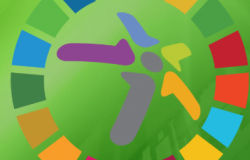WSIS 2019 panel ‘ICTs in the university environment’ (Part 2)

Two weeks ago Suay Ozkula and I led a delegation of eight students from the Global Leadership Initiative in the Social Sciences at the University of Sheffield to the 2019 World Summit on the Information Society (WSIS) in Geneva, Switzerland. The team developed and ran the ‘ICTs in the university environment’ session during the event.
The slides for the presentation can be found here and a link to a video recording of the session can be viewed on the WSIS site.
In this second blog about the event (the first is here), I will go through some of the key points from each presentation.
The fifth speaker during the event was Myra Mufti (MSc. International Social Change & Policy), who examined how ICTs could help make university admissions processes more efficient in Pakistan (from 24.40 on the webcast).

The Online College Admissions System (OCAS) introduced in the Punjab province has handled in excess of 317,000 applications in the past few years (a huge rise since 2016). The cost of these applications has been greatly reduced, with a time saving also evident due to the fact that visits are no longer required. Myra reflected on how OCAS could help bridge geographical, gender-based and financial divides within Pakistan.
The penultimate presentation from Romany Kisbee-Batho (Graduate Diploma in Law) focussed on her social media activism against immigration detention centres in counties such as Lincolnshire (beginning at 31.40 on webcast).

Romany showed several examples of the media coverage achieved by the Student Action for Refugees Society (STAR) at the University of Sheffield. Refugees detained in these centres are forbidden from using mobile phones, so a key focus of this student activism is to give them a voice through the use of social media to highlight their plight. STAR works with other NGOs/groups (e.g. Freed Voices) to empower people to speak out about how refugees are being treated within these institutions. However, this campaign is about evoking agency amongst refugees rather than just speaking for them. Their involvement in the anti-immigration detention movement is fundamental for ensuring its success.
The final speaker was Rebecca Heminway (MA Digital Media & Society), who spoke about the role of ICTs in improving mental health amongst students at the University of Sheffield (beginning at 38.33 on the webcast).

Drawing on her work as a Mental Health Officer, Rebecca spoke about the rise in self-reported mental health problems by students in the UK over the past decade. At the same time, digital devices (e.g. smart phones, iPads, laptops) are ubiquitous amongst HE students, thus providing opportunities for the provision of additional support to those who need it. However, there are a number of barriers that must be overcome in order for this potential to be realised. These include the lack of data sharing between and within HEIs, and the absence of architectural approaches towards implementing interventions for student mental health within the sector.
The session was ably chaired by Hana Okasha, who facilitated a very interesting discussion about the future role of ICTs within Higher Education after the presentations had finished.

Well done to the team for all their hard work and delivering such an excellent session at WSIS 2019!

This first appeared on Paul's own blog. The GLI team's outputs can be found here.


